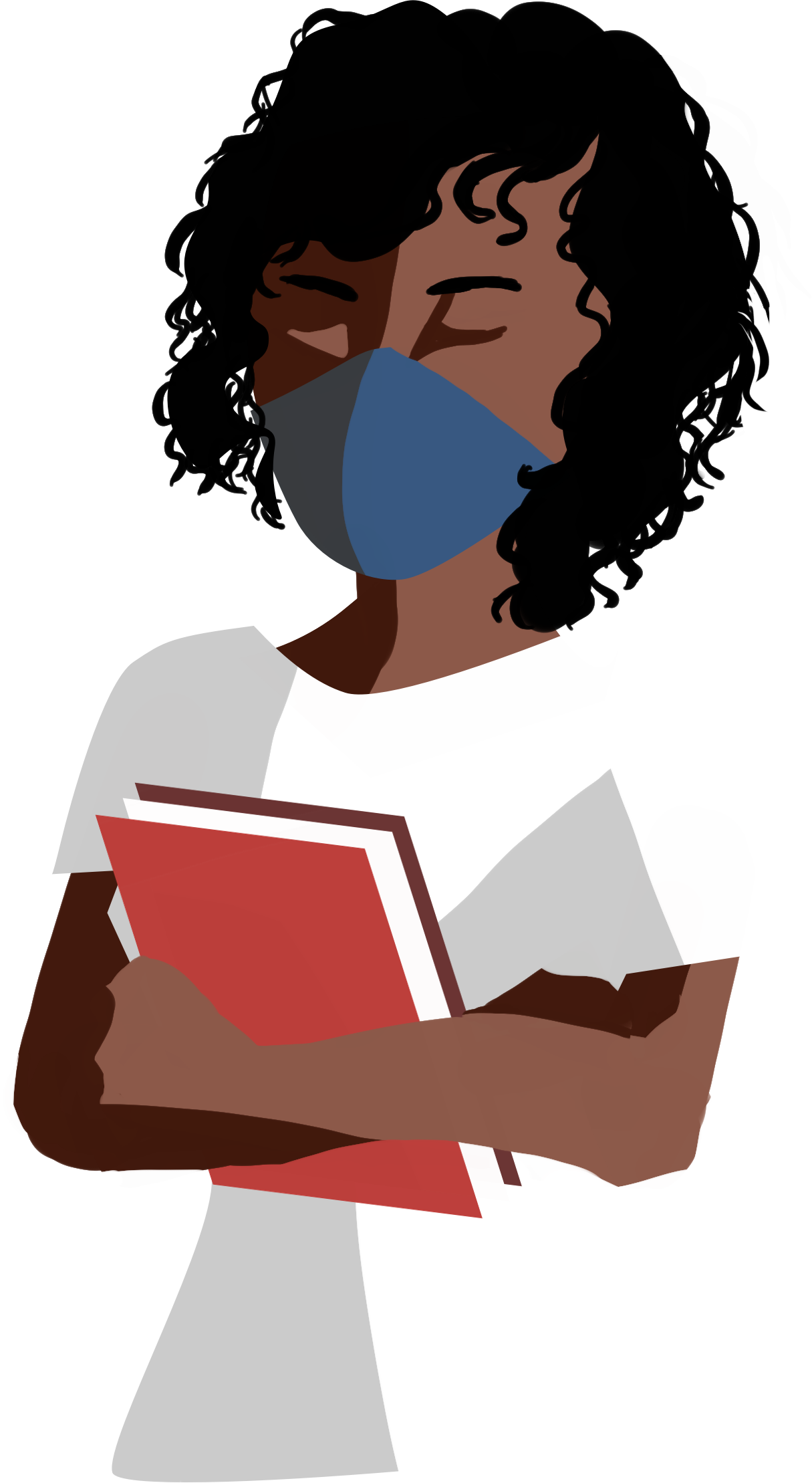The College of Arts and Sciences has created one-credit classes to teach students about COVID-19 and racial injustice. Graphic by Elizabeth Wong.
The University of Rhode Island College of Arts and Sciences recently created a variety of innovative, one-credit courses for the fall semester, addressing racial justice issues and COVID-19.
The idea to develop one-credit courses came as a response to COVID-19 and a changing academic environment. The Associate Dean of the College of Arts and Sciences Nedra Reynolds believes that the courses will work well with the changes implemented at URI in the fall 2020 semester.
“The dean saw that the University of Connecticut was offering a free one-credit course on COVID-19,” Reynolds said. “We thought that was a great idea: to give students the chance to earn one credit more towards graduation, during what was expected to be a stressful semester.”
The course ideas came flowing in during the summer after College of Arts and Sciences Dean Jen Riley sent out a faculty request for the one-credit course idea.
“The dean hosted a meeting in mid-June and invited people to propose one-credit courses that would address these pressing issues, such as COVID-19 or racial justice,” Reynolds said.
The two faculty committees, including Reynolds, worked to approve the innovative courses ideas once they were finalized for the Fall 2020 semester. Reynolds described the purpose of the one-credit courses being student-oriented as students may need one more credit to be considered full time.
“We wanted them to be on something that would either address some current issues or be particularly appealing to students such as the course Rewatching the Watchmen [AAF 120X],” Reynolds said.
Among the courses available to the URI student community, there is CSC 292: Exploring COVID-19 Data, which focuses on analyzing data from the global COVID-19 pandemic.
Computer science professor Indrani Mandal has collaborated with professor Harrison Decker from the University library to create a global COVID-19 data analysis course that was made with the interest of all University students in mind.
“[Students] are living this and seeing this data every day,” said Mandal. “They are already seeing the visualization and I felt that they could connect and would do a good job if they were taught the tools.”
As the data is relevant to the world today, Mandal emphasized the importance of collaboration with Decker and having different student perspectives on the data created from the data visualization site Tableau.
“He and I have collaborated for this course because I know how to crunch data and he knows where to find good data and how to pre-process that data,” Mandal said. “We would definitely like more students with diverse views because there is no prerequisite, and this is a very good course for anybody on campus.”
The one-credit course online format has connected students and instructors globally as computer science graduate Archana Chittoor began working with Mandal on the course from India. Chittor believes that students will be able to keep up with the online course.
“I think online would be doable for students because we are all working on Tableau and students can download that on their laptops easily,” Chittor said. “The documents have lots of step-by-step instructions for students to follow easily and the professor is there to help them out if necessary.”
Criminology and criminal justice Professors Megan Parry and Natalie Pifer collaborated to create CCJ 100X: Interrogating Criminal Justice Reform as a way to show URI students the history of criminal justice reform and how the same topics have been circulating for years.
“We were excited to be able to offer a course topic that is not only relevant to what we do with our research, but also felt really relevant to the particular moment and time that our students are living in,” Pifer said.
The course quickly filled up for the fall 2020 semester as Parry and Pifer have been building a list of topics to cover for the one-credit course.
“A lot of these questions around reform, we have heard these same arguments and calls for a long time going back into the 50s or the 60s,” Parry said. “Questions around treatment of marginalized citizens by the police, pushback there and we’ve been circling around the same topics for decades. We will be working to provide the context of where we were and where we are now and what has worked and what has not worked.”
In the new age of online learning, the one-credit courses have provided various URI students with the opportunity to move forward in their college careers without the stress of four-credit courses.
“We did ask things in a forum about what their concerns were for the semester,” Pifer said. “Most of them were about time management, teaching in an online environment where there are no expectations to show up for a class in person or even watch the live zoom recording and just general anxiety about the world we are living in.”





